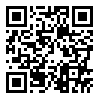مجله رویش روانشناسی از دادن گواهیهای کاغذی معذور است. لطفا تقاضا نکنید. همه گواهی ها در صفحه شخصی کاربران موجود است.
year 14, Issue 4 (sumer 2025 2025)
Rooyesh 2025, 14(4): 1-10 |
Back to browse issues page
Download citation:
BibTeX | RIS | EndNote | Medlars | ProCite | Reference Manager | RefWorks
Send citation to:



BibTeX | RIS | EndNote | Medlars | ProCite | Reference Manager | RefWorks
Send citation to:
Farkhondehfal M, Nejat P. (2025). Prediction of Grandiose and Vulnerable Narcissism based on Explicit and Implicit Self-esteem: Test of Mask Model Theory. Rooyesh. 14(4), 1-10.
URL: http://frooyesh.ir/article-1-5462-en.html
URL: http://frooyesh.ir/article-1-5462-en.html
1- Ph.D Candidate in health psychology, Department of Psychology, Faculty of Education and Psychology, Shahid Beheshti University, Tehran, Iran.
2- Assistant Professor, Department of Psychology, Faculty of Education and Psychology, Shahid Beheshti University, Tehran, Iran. ,p_nejat@sbu.ac.ir
2- Assistant Professor, Department of Psychology, Faculty of Education and Psychology, Shahid Beheshti University, Tehran, Iran. ,
Abstract: (745 Views)
This research aimed to predict grandiose and vulnerable narcissism based on explicit and implicit self-esteem. The research method was descriptive and correlational. The study community included all university students of Shahid Beheshti University in Tehran, among whom 125 students were selected as samples by available sampling in 1401 spring. Rosenberg Self-esteem Scale (RSE) (1965), self-esteem Implicit Association Test (IAT) (Greenwald & Farnham, 2000), Brief Pathological Narcissism Inventory (B-PNIa) (Schoenleber et al., 2015), Grandiose Narcissism Scale (GNS) (Crowe et al., 2018), and Vulnerable Narcissism Scale (VNS) (Crowe et al., 2018) were used for measuring. Data analysis was performed with Pearson correlation and regression analysis. Explicit self-esteem has a positive relationship (p<0.01) with Grandiose narcissism, while implicit self-esteem doesn't have any relationship. Explicit self-esteem could explain 34% of grandiose narcissism variance, while implicit self-esteem was not a significant predictor. Explicit and implicit self-esteem both have a negative relationship (p<0.01 and p<0.05) with vulnerable narcissism. Explicit and implicit self-esteem could explain 42% of vulnerable narcissism variance. It can be concluded that explicit self-esteem is a good predictor of grandiose narcissism, while implicit self-esteem is not. Also, explicit and implicit self-esteem are good predictors of vulnerable narcissism. This study emphasizes the importance of considering both forms of narcissism and self-esteem to study their relationship.
Type of Article: Research |
Subject:
General Psychology
Received: 2024/06/17 | Accepted: 2025/04/13 | ePublished: 2025/07/1
Received: 2024/06/17 | Accepted: 2025/04/13 | ePublished: 2025/07/1
Send email to the article author
| Rights and permissions | |
 |
This work is licensed under a Creative Commons Attribution-NonCommercial 4.0 International License. |





